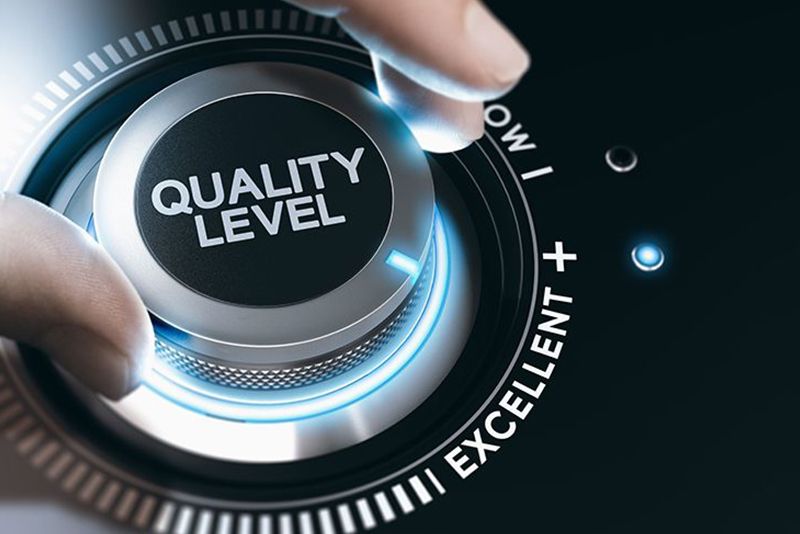
Let’s build something great.
From the first line of code to production at scale, we turn healthcare challenges into software that performs, connects, and lasts.
What We Integrate
We handle the full spectrum of healthcare integrations—across systems, standards, and data types—so you don’t have to coordinate across multiple vendors.
Healthcare Integrations We Specialize In
We connect systems using every standard that matters — from trusted HL7 feeds to the latest FHIR APIs.
Why It Matters:
Admissions, labs, orders, transcriptions, care summaries — daily operations depend on moving this data instantly between EHRs, LIS, RIS, and partner systems. When data stalls or mismatches, patient care slows, duplicate work piles up, and compliance risk grows.
How We Do It:
We map every touchpoint, clean up messy source formats, and bridge older message structures to modern APIs so you can connect new patient apps or portals without tearing out stable systems. For example, we help hospitals keep HL7 lab feeds steady while sharing results through FHIR APIs, or connect an older RIS to a cloud PACS with zero manual re-entry. Every connection is tested with real scenarios to hold up when partners change a feed or a standard version.
Standards We Use:
- HL7 v2 & v3: Live messaging for ADT, orders, results.
- CDA / C-CDA: Structured documents for care summaries.
- FHIR R4 & R5: Secure APIs for modern apps and patient access.
Why It Matters:
Radiology, cardiology, and labs generate huge volumes of critical patient data. That data has to move smoothly between PACS, RIS, LIS, and EHRs so results reach the right clinician fast and without error.
How We Do It:
We design connections that fit how your departments actually work, whether it’s routing DICOM images to cloud storage or handling lab orders that still rely on older ASTM protocols. We ensure your imaging workflows stay fast, and your lab data lands in the patient chart where it belongs, fully mapped and coded.
Standards We Use:
- DICOM & DICOMweb: Standard for imaging and PACS/VNA sharing.
- HL7 ORU / OML: Lab orders and results.
- ASTM: Used for legacy lab devices.
Why It Matters:
Eligibility checks, prior authorizations, and claims keep revenue flowing. If data lags or mismatches, payments stall and rework pile up.
How We Do It:
We build stable EDI bridges that sync your systems with clearinghouses, payers, and PBMs. For example, we help a provider verify coverage in seconds with real-time 270/271 feeds instead of waiting days for paper follow-up. Remittance files flow back cleanly to your billing team through secure 835 connections, closing the loop with less manual correction.
Standards We Use:
- X12 EDI (270/271, 278, 837/835): Eligibility, prior auth, claims, remits
- NCPDP SCRIPT: E-prescriptions to pharmacies and PBMs
Why It Matters:
Data often moves beyond your four walls. Sharing patient summaries, referrals, or identity details with partners or regional exchanges demands standards you can trust.
How We Do It:
We connect your EHRs and partner systems to HIEs and HISPs using IHE profiles for patient matching and XDS.b for document exchange. For example, we help a hospital push discharge summaries to a state HIE with XDS.b while ensuring patient IDs match perfectly through PIX/PDQ. When DIRECT messaging is a better fit, we set up secure channels so your providers can send referrals directly from the EHR.
Standards We Use:
- IHE Profiles (XDS.b, PIX/PDQ): Document sharing, patient matching
- DIRECT Protocol: Secure messaging for providers
Why It Matters:
Patients and clinicians expect fast, secure access to health data — not just inside the hospital but on phones, tablets, or wearable devices at home.
How We Do It:
We help you open up your EHR safely with SMART on FHIR so trusted apps can pull patient data with proper consent. For example, we bridge remote monitoring data from connected wearables into your clinical workflows using IEEE or Bluetooth Low Energy protocols, mapping the values back to the patient chart without manual entry. Every connection aligns with USCDI v3 so you stay compliant with national exchange rules.
Standards We Use:
- SMART on FHIR: Patient and clinician apps
- USCDI v3: National data classes for exchange
- IEEE 11073, BTLE: Wearables and bedside devices
Why It Matters:
Exchanging data across organizations now means proving you meet trust and security standards — not just your own but the nation’s.
How We Do It:
We help you align your systems with the TEFCA Framework so you can join a QHIN and exchange data nationwide without rebuilding your tech stack. This means mapping existing feeds to TEFCA rules, ensuring record completeness, and preparing your interfaces for third-party audits when required.
Standards We Use:
- TEFCA Framework: Trust framework for QHIN onboarding
How We Work Across Your Integration Lifecycle
We cover every stage whether you’re enabling new connections, keeping legacy stable, or simplifying what’s grown too complex.
When you add partners or expand workflows, you need modern, standards-driven connections.
- Build HL7 interfaces with proven engines like Mirth, BizTalk, Cloverleaf
- Enable CCDA & FHIR exchange for secure patient data flows
- Develop FHIR Bulk Data APIs & secure OAuth2 connections
- Deliver digital RCM streams — 837, 835, 270, 271, 834
- Submit CQM data with QRDA to meet reporting mandates
- Support TEFCA trusted exchange & QHIN onboarding
- Deploy engines on-prem or cloud, containerized if needed

Legacy systems often do their job well — but hidden risks and old interfaces can break under change.
- Monitor interfaces proactively to catch exceptions early
- Adapt integrations fast when partner systems change
- Use automated tests to prevent live-break errors
- Keep clear documentation to remove tribal knowledge gaps
- Upgrade message flows and APIs to match new standards (HL7, FHIR, TEFCA)

As standards mature, older interface sprawl costs you more than it saves. We can help you untangle it.
- Analyze every integration touchpoint inside and out
- Map workflows to uncover hidden redundancies
- Design a simpler “to-be” architecture that lowers support cost
- Rationalize your ecosystem to reduce overhead & upgrade faster

Wherever you are — building new, managing old, or cleaning houses — we keep your healthcare data moving, compliant, and ready for what’s next.
Why Choose Nalashaa
Our approach ensures your software launches strong — and stays strong.

We remain accountable for your timeline and targets. No last-minute surprises, no shifting expectations — just steady, reliable delivery.

Testing isn’t a checkbox — it’s part of how we build. From day one, every sprint includes automated checks, workflow validations, and review cycles.

We design compliance requirements from the start — with encrypted data flows, access controls, and full traceability built into the system.

Our systems are built to grow with your users, data, and needs — without rework. Whether you scale to a dozen clinics nationwide, performance holds steady.

Needs to evolve — your software should too. We structure our code, documentation, and deployment model, so you’re never locked in or left behind.
Let's Build Healthcare Technology Together
Bring your healthcare product ideas to life with expert engineering guidance.
Call Us:
732-602-2560
Mail Us:
info@nalashaa.com
Specialized Support for Your Ecosystem
We go beyond product development to solve the operational, regulatory, and technical challenges that come after launch.
Quick Reads to Help You Navigate Interoperability
Frequently Asked Questions
Healthcare interoperability solutions are tools and systems that enable secure, accurate, and efficient data exchange between different healthcare software platforms. These solutions help connect EHRs, labs, payers, and third-party applications to ensure timely access to clinical and administrative information.
The four levels of interoperability are:
- Foundational – Basic data exchange between systems
- Structural – Consistent data formats and syntax
- Semantic – Shared understanding of data meaning
- Organizational – Governance, privacy, and policies that support exchange across systems and entities
A hospital’s EHR system sending real-time lab results to a specialist’s clinic using FHIR APIs is a practical example. Both systems use interoperability standards to exchange structured, meaningful data without manual input
Improvements start with adopting standards like FHIR and USCDI, reducing reliance on custom integrations, and working with vendors that offer scalable, standards-compliant interoperability services. Participation in national frameworks like TEFCA also enhances exchange readiness.
Two major challenges include:
- Data inconsistency across systems due to legacy formats or poor standardization
- Lack of aligned workflows, where even connected systems struggle with timing, permissions, or context for data use
Examples include:
- Proprietary software that resists data sharing
- Incompatible data standards or formats used across platforms
FHIR servers act as standardized access points for healthcare data, using modern APIs to facilitate real-time, secure information exchange between systems, apps, and users.
TEFCA is not mandatory yet, but it is shaping how national health information networks will operate. Vendors aligned with TEFCA principles are more likely to remain compatible with emerging client requirements.


